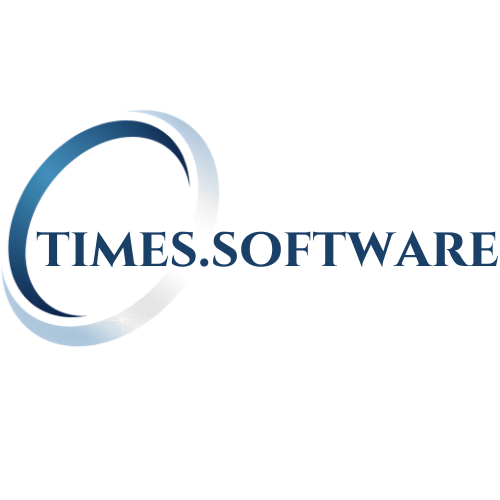
In the ever-changing environment of B2B engagements, a customer’s journey while engaging with a business is becoming increasingly data-driven. While data-driven approaches have numerous advantages, they also present serious privacy concerns. In this post, we will look at why data privacy is such an important consideration when mapping B2B customer journeys.
Table of Contents
Introduction
Definition of B2B Customer Journey Mapping
B2B customer journey mapping entails visualizing and comprehending the many touchpoints that a business customer experiences during their relationship with a company. This covers pre-purchase research, the purchasing process, and post-purchase interactions.
What is B2B Customer Journey Mapping?
Before going into the complexities of data protection, let’s define B2B customer journey mapping. This method entails visualizing the many touchpoints and interactions that a business customer experiences with a company. It is an effective method for assessing the customer experience, detecting pain points, and enhancing interactions to increase satisfaction.
Significance of Data in B2B Customer Journey Mapping
Data is critical in shaping the B2B client journey. Every connection, from first engagement to post-purchase communication, yields useful information. This data reveals insights into customer behavior, interests, and wants, allowing firms to customize their plans and services.
Data Privacy in the Digital Age
Concerns about data privacy have risen to new heights in the digital age, where information is shared at lightning speed. Customers, whether people or corporations, are increasingly concerned with how their data is gathered, utilized, and preserved. This increased awareness is especially noticeable in B2B transactions due to the sensitive nature of business-related data.
Challenges in B2B Data Privacy
While many people are familiar with data privacy issues in the B2C arena, B2B transactions present unique obstacles. The sheer volume and complexity of data transferred in business requires specialized ways to protect information confidentiality and security.
Regulatory Frameworks and Compliance
Governments and regulatory authorities around the world have realized the necessity of protecting personal and business data. This has resulted in the implementation of stringent data protection legislation, like the General Data Protection Regulation (GDPR) in Europe and the California Consumer Privacy Act (CCPA) in the United States. Businesses doing B2B transactions must follow these requirements to avoid legal consequences and, more significantly, to maintain ethical standards.

Impact of Data Breaches in B2B
A data breach in the business-to-business sector can have serious effects. Beyond financial losses, firms face reputational damage and a loss of trust among their partners. High-profile instances highlight the need for strong data security procedures to prevent unwanted access and breaches.
Building Trust through Data Privacy
Trust is the foundation of effective B2B relationships. Businesses that prioritize and demonstrate a commitment to data protection foster confidence among their partners. Once formed, this trust promotes collaboration, transparency, and long-term commercial connections.
Best Practices for B2B Data Privacy in Customer Journey Mapping
Adopting best practices is essential for ensuring data privacy in B2B customer journey mapping. This involves using encryption technologies to secure data during transmission and storage, performing regular security audits, and transparently conveying data-handling policies to all stakeholders.
Educating Stakeholders on Data Privacy
Creating a culture of awareness and understanding about data privacy is critical. All stakeholders, including employees, clients, and partners, should be taught on the value of maintaining confidentiality and following privacy protocols. This proactive approach dramatically lowers the likelihood of unintended data leakage.
Technology and Data Encryption in B2B
Embracing sophisticated technology, such as encryption, is critical for protecting sensitive B2B information. Encryption serves as a protective shield, guaranteeing that even if data is intercepted, it is unreadable by unauthorized parties. This technology is useful in reducing the danger of data breaches.

Adapting to Evolving Threats
The world of cyber dangers is continually changing. Businesses must remain cautious and constantly update their security processes to combat new and sophisticated threats. A proactive approach is critical to protecting B2B data from growing dangers.
Case Studies on Successful B2B Data Privacy Implementation
Examining real-world instances of firms that have effectively implemented strong data privacy protections yields useful insights. These case studies demonstrate effective tactics, highlight obstacles, and provide lessons learned, acting as a guide for other organizations navigating the complicated terrain of B2B data protection.
Future Trends in B2B Data Privacy
Cyber threats’ techniques evolve in tandem with technological advancements. Predicting and preparing for future data privacy trends helps firms stay proactive in protecting sensitive information. Staying ahead of the curve is critical in the continuous fight against potential data breaches.
Also Reads: How Can B2B Customer Journey Mapping Improve Marketing ROI?
What Are the Top Trends in B2B Customer Journey Mapping for 2023?
How Can B2B Customer Journey Mapping Drive Product Innovation?
Why Is B2B Customer Journey Mapping an Ongoing Process?
What Are the Keys to Effective B2B Customer Journey Mapping?
Conclusion
Finally, incorporating data into B2B customer journey mapping provides firms with previously unattainable insights and opportunities. However, this data-driven strategy poses serious concerns regarding privacy. Businesses that emphasize data privacy not only meet regulatory standards, but they also establish trust, risk mitigation, and long-term partnerships in the competitive B2B landscape.
Frequently Asked Questions
Q: How can businesses balance data utilization with customer trust in B2B transactions?
A: Striking the right balance involves transparent communication, robust security measures, and demonstrating the mutual benefits of data utilization.
Q: Are there specific regulations governing data privacy in B2B transactions?
A: Yes, regulations such as GDPR and CCPA have implications for B2B data privacy, necessitating compliance measures.
Q: What role does encryption play in securing B2B data?
A: Encryption is crucial, ensuring that sensitive information remains unreadable to unauthorized parties during storage and transmission.
Q: How can businesses stay updated on evolving threats to data privacy?
A: Regularly monitoring industry updates, participating in cybersecurity forums, and investing in ongoing employee training are effective strategies.
Q: What steps can businesses take to recover from a data breach in the B2B sector?
A: Promptly addressing the breach, notifying affected parties, and implementing enhanced security measures are crucial steps in recovery.
